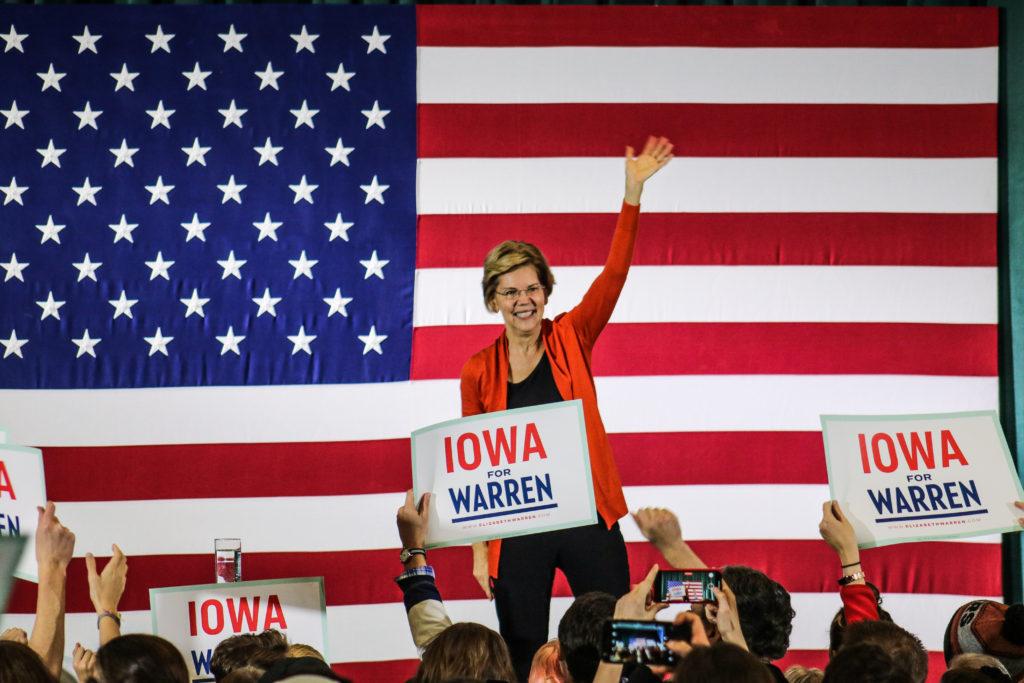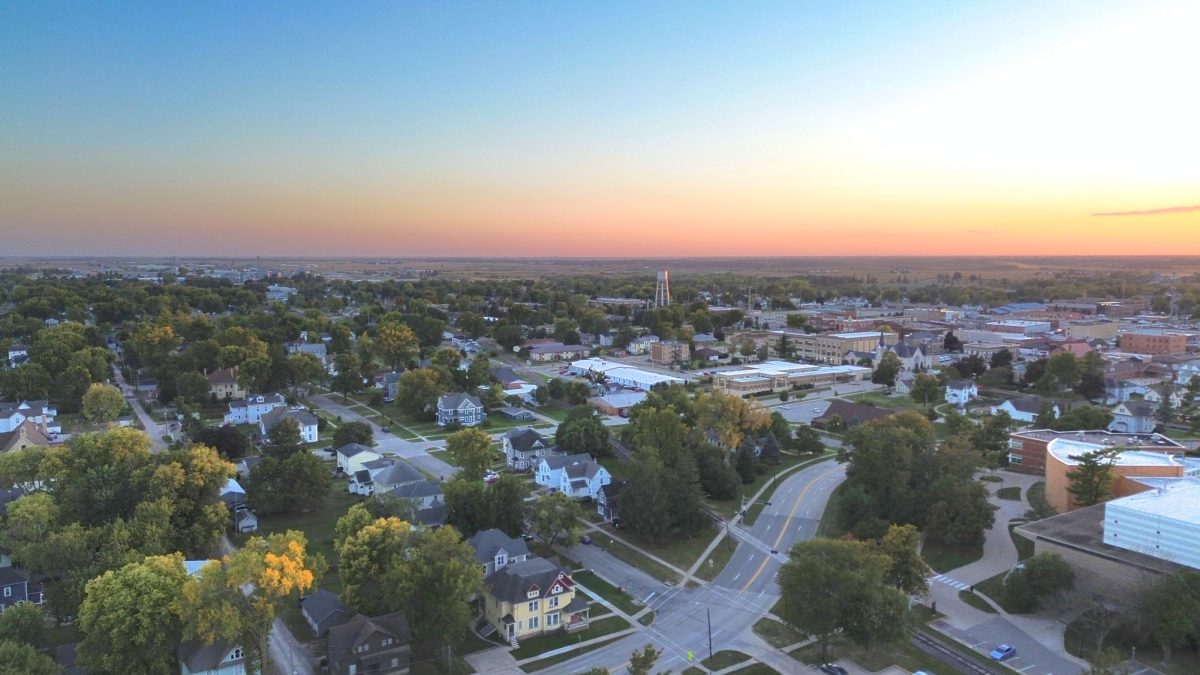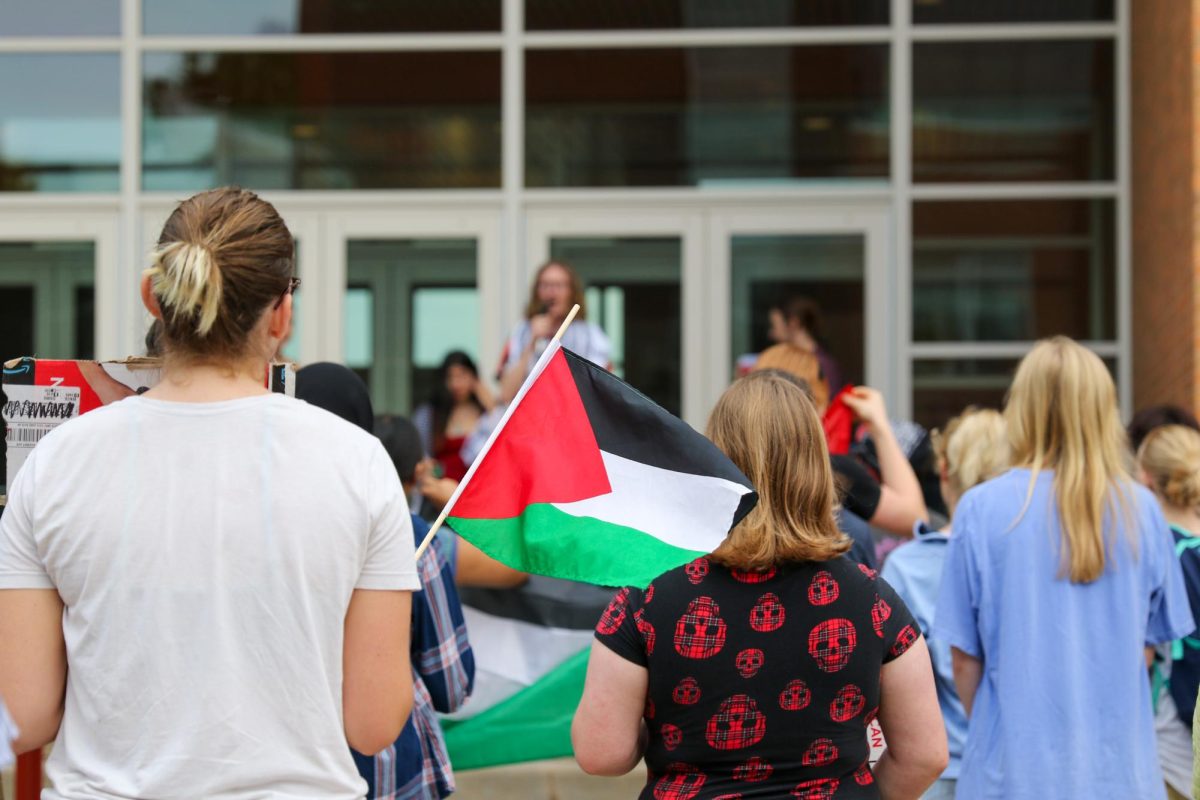By Tali Tesar
tesarta@grinnell.edu
Presidential candidate Elizabeth Warren addressed a crowd of about 850 students, faculty and community members in Harris Center on Monday to make a case for supporting her agenda of “big, structural change” in the upcoming Iowa caucus.
In her campaign, Warren works to persuade voters with this structural change both to tackle government corruption and economic issues. This change, Warren says, is the center of her campaign and leads her to advocate for policy proposals such as removing the influence of lobbyists in politics, a two-cent wealth tax and Medicare for All, among many others.
Medicare for All has become one of the more contentious issues in the Democratic primary, as it is one of only a few areas of dispute between candidates. When asked about the necessity of entirely abolishing private insurance, Warren told The S&B that “Health care is a basic human right,” and she further argued that “American families need a choice” that insurance companies do not offer them. According to Warren, there is also a large economic reason she supports the policy: “This would be the equivalent of the biggest tax break in American history, and it would go to hardworking families, so I’m all in on it,” she said.
In addition, the two-cent wealth tax is a unique policy her campaign has proposed. Warren said this tax will affect only the “top one tenth of the top one percent” and will generate revenue to pay for several economic reforms aimed at decreasing inequality, such as universal preschool, improved public education funding and student loan debt cancelation.
Many of the community members planning to caucus are still undecided on their candidate. Dan and Mary Newton drove from Newton, IA to see Warren speak for the first time. Mary Newton said she is concerned Warren is “a little bit too liberal for us and for the country,” but she “likes her attitude towards big change.”
Alex Hiser ’23, who is from Massachusetts but had never heard Warren speak until she came to Grinnell, said her message of big change resonated well with him, contrasting it to Cory Booker’s. “He talked about these problems we have in the country and his solutions to them, but I felt like they were a little more surface problems, and I felt like the things that Elizabeth Warren was bringing up were deeper problems, and the solutions that she was coming up with would solve a wider range of things,” Hiser said.
According to Hiser, Warren’s visit changed his view of the Democratic primary. “I was very undecided about who I wanted to vote for, but [after Warren’s speech] I leaned much stronger towards her,” he said. But he also added, “I need to see a few more before I can solidify that, but there’s a pretty good chance.”
Keir Hichens ’22 shared similar indecision. “For now, I’m going to stay undecided because that gives me a little more weight as a voter. … I’m still taking in lots of information,” he said. But Hichens also reported being impressed with Warren during her visit, saying she came across as genuine and personable. “Seeing clips and things, she can seem a little canned. Her responses can seem a little scripted and a little bit fake, but I didn’t get that vibe at all seeing her in person. It seemed like she really believed what she was saying. Her jokes were funny and she seemed personable and she really cared about the audience she was with,” Hichens said.
He also believes this attitude is important for the eventual nominee, saying “We will win with a candidate who believes strongly in what they’re proposing … they have conviction in what they’re doing … that’s why I like Elizabeth Warren.”
In addition to current students and community members, Warren’s visit aligned with a Discover Grinnell weekend, giving many prospective students an opportunity to attend and gain insight to the politically engaged nature of the campus.
Colter Adams, a prospective student from the D.C. area said, “I mean it’s pretty unfathomable that I would come to a campus of just 2,000 people and get to see one of the leading Democratic candidates for president speak, so it factors into my decision [to attend] pretty significantly. I think just the fact that this campus is so politically active really speaks … to the values reflected here and why I’d want to come.”
As candidates continue to make their case to Grinnell and surrounding communities, caucus night will test whether or not Iowans support agendas such as Warren’s call for “big, structural change.”





























































